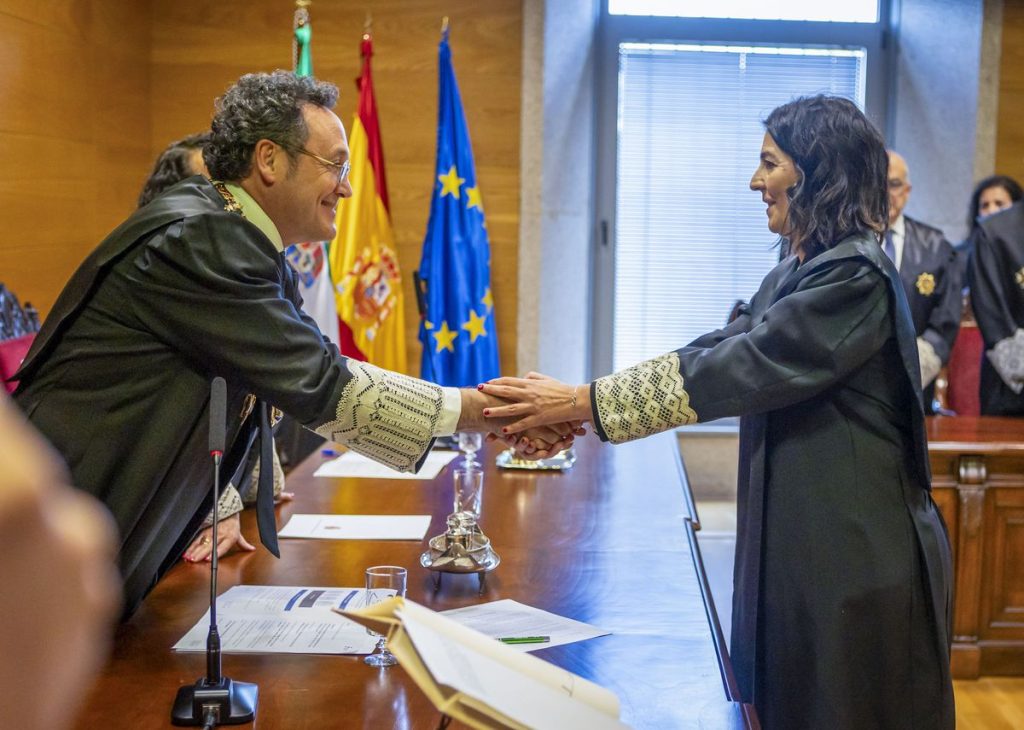In the midst of the war declared by the conservative sector of the Prosecutor’s Office against the Attorney General of the State regarding the amnesty law for those accused in the procés, Álvaro García Ortiz aims to unite the entire career to push for a modification of the Organic Statute of the Public Ministry that provides greater “autonomy” to this institution. All sectors of the Prosecutor’s Office agree that this reform is necessary to assume the powers that will be granted by the new Code of Criminal Procedure (Lecrim), a project that has been stagnant for years but that the government wants to unblock in the coming months and that will leave the prosecution of criminal cases in the hands of prosecutors. García Ortiz met with the three associations of prosecutors on Wednesday and tasked them with drafting the new Statute and seeking the opinion of the entire career, according to sources from the Prosecutor’s Office and the associations.
The meeting on Wednesday was proposed by García Ortiz after the Minister of Justice, Félix Bolaños, confirmed that the government intends to approve the new Lecrim in the coming months, one of the most significant legal reforms designed in recent years that will revolutionize the criminal process. The project to assign the prosecution of criminal investigations to prosecutors was initiated almost 15 years ago, during the government of José Luis Rodríguez Zapatero, and the PP has also been favorable, but the project has been delayed. With Pedro Sánchez in power, the Council of Ministers approved the preliminary draft in November 2020, and in February 2021, requested reports from the Council of Prosecutors and the General Council of the Judiciary for further processing of the legislation.
The main advisory body of the Attorney General unanimously approved a document of over 700 pages five months later supporting the government’s decision to entrust criminal investigation to prosecutors, a historic demand of the career, but raised concerns about aspects of the law that, in its view, could jeopardize the new criminal process model. One of the concerns raised by prosecutors is that the new functions assigned to the public ministry by the Lecrim require a reform of the Organic Statute of the Public Ministry to advance in areas of autonomy, specialization, transversality, and decentralization and to promote public trust in the institution.
The reform of the Statute governing the operation of the career is expected in the new Lecrim, but the government does not specify what these changes will entail. García Ortiz has tasked the three associations, the Association of Prosecutors (the largest, conservative-leaning), the Progressive Union of Prosecutors, and the Independent Association of Prosecutors, with this task. The intention of the Prosecutor’s Office is for all prosecutors to participate in the drafting of the new Statute. Both parties will meet again on May 7th. The government is still awaiting the report from the CGPJ on the legal reform, which has been pending for over three years. The ministry requested the text from the Council in March, setting a deadline that the judicial body failed to meet, prompting the CGPJ to resume work on the report, aiming for a plenary presentation in June, three months behind the government’s schedule.
The CGPJ has a document prepared by a working group of three judges that highlights the need for a reform of the Organic Statute of the Public Ministry to ensure functional and organizational autonomy and impartiality, in line with constitutional principles. The report suggests changes to the appointment system and tenure of the Attorney General of the State to enhance independence and immunity from government intervention. The experts also recommend restrictions on the government’s ability to direct instructions to the Attorney General, in line with recommendations from international bodies such as the GRECO. This reform aims to strengthen the relationship between the public ministry and the government, ensuring independence and integrity in the prosecution.















